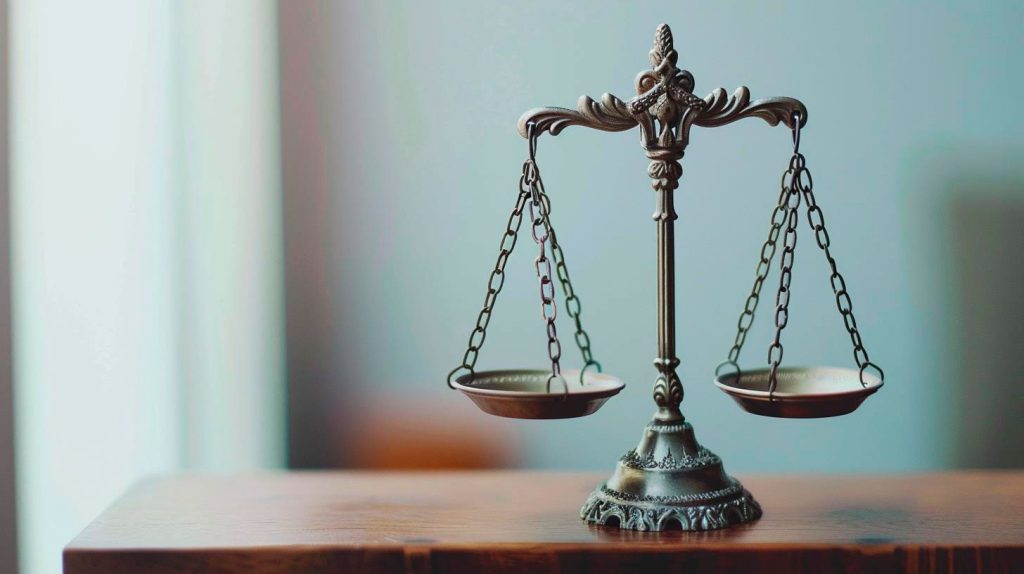
Protecting Retirement Accounts During and After Divorce
In this article, we will discuss strategies for protecting retirement accounts during and after divorce.
Understanding the Basics
When it comes to dividing retirement accounts during a divorce, it’s essential to understand the different types of retirement savings and how they are typically divided. In most cases, retirement accounts such as 401(k)s, pensions, and IRAs are considered marital assets and are subject to division during divorce proceedings. However, it’s important to note that the division of retirement savings can be a complex process, and it’s crucial to seek legal guidance to ensure that your interests are protected.
Benefits of Hiring a Lawyer
One of the most important steps you can take to protect your retirement accounts during and after divorce is to hire a skilled lawyer who specializes in family law. An experienced attorney can help you navigate the legal system, negotiate with your ex-spouse’s legal team, and ensure that your retirement savings are divided fairly. By working with a lawyer, you can avoid costly mistakes and protect your financial future.
- Lawyers can help you understand the complex laws surrounding retirement account division
- They can negotiate on your behalf to secure a fair division of assets
- Lawyers can provide guidance on tax implications and other financial considerations
Strategies for Protecting Your Retirement Accounts
1. Obtain a Qualified Domestic Relations Order (QDRO): A QDRO is a legal document that outlines how retirement savings will be divided between spouses during a divorce. It’s essential to work with a lawyer to ensure that the QDRO is properly drafted and approved by the court to avoid any issues in the future.
2. Consider the long-term implications: When dividing retirement accounts, it’s crucial to consider the long-term impact on your financial future. Work with a financial planner to understand how the division of assets will affect your retirement goals and make strategic decisions to protect your savings.
3. Explore alternative options: In some cases, it may be possible to negotiate with your ex-spouse to reach a mutual agreement on how to divide retirement savings. Mediation or collaborative divorce processes can help you avoid costly litigation and reach a fair resolution that protects your financial interests.
Industry Statistics
According to a study by the National Center for Family & Marriage Research, retirement savings are among the top assets that are divided during divorce proceedings. In fact, approximately 20% of couples report having retirement savings divided as part of their divorce settlement. With the right legal guidance, you can ensure that your retirement accounts are protected and secure your financial future.
Overall, protecting your retirement accounts during and after divorce requires careful planning and strategic decision-making. By working with experienced lawyers and financial planners, you can navigate the complexities of dividing retirement savings and secure your financial future. Remember to consider the long-term implications of asset division and explore alternative options to reach a fair resolution that protects your financial interests.
Divorce can be a challenging time, but with the right support and guidance, you can protect your retirement accounts and secure your financial future.
Understanding the Impact of Divorce on Retirement Savings
This high divorce rate underscores the importance of understanding how divorce can affect one’s retirement savings.
Division of Retirement Assets
One of the key factors to consider in a divorce is the division of retirement assets. In many states, retirement savings acquired during the marriage are considered marital property and are subject to division between the spouses. This can include pension plans, 401(k) accounts, IRAs, and other retirement savings vehicles. It’s crucial to work with a knowledgeable attorney who can help navigate the complex process of dividing retirement assets during divorce proceedings.
Impact on Retirement Readiness
Divorce can significantly impact an individual’s retirement readiness. According to a study conducted by the Center for Retirement Research at Boston College, divorced individuals are more likely to experience a decline in their standard of living in retirement compared to married individuals. This decline can be attributed to the division of assets, legal fees, and the cost of maintaining separate households post-divorce.
Employer-Sponsored Retirement Plans
For individuals going through a divorce, it’s essential to understand the implications of dividing employer-sponsored retirement plans. The Employee Retirement Income Security Act (ERISA) governs the division of retirement assets in many employer-sponsored plans, such as 401(k) accounts and pensions. It’s important to follow the guidelines set forth by ERISA to ensure a fair and equitable division of these assets.
Spousal Support and Retirement
Spousal support, also known as alimony, can also play a significant role in the impact of divorce on retirement savings. The amount of spousal support awarded in a divorce settlement can impact both parties’ ability to save for retirement. It’s crucial to work with a knowledgeable attorney to ensure that any spousal support agreements are fair and sustainable in the long term.
Planning for the Future
Divorce can be a tumultuous time, but it’s essential to start planning for the future, particularly when it comes to retirement savings. A Certified Divorce Financial Analyst (CDFA) can help individuals navigate the financial implications of divorce and develop a plan for rebuilding their retirement savings. By working with a financial professional, individuals can take proactive steps to secure their financial future post-divorce.
Divorce can have a significant impact on retirement savings, but with careful planning and guidance from knowledgeable professionals, individuals can navigate the process and protect their financial future. By understanding the implications of divorce on retirement savings and taking proactive steps to address these challenges, individuals can ensure a secure and stable retirement.
Rebuilding Credit and Saving for Retirement After Divorce
Rebuilding Your Credit
After a divorce, your credit score may take a hit due to joint accounts, missed payments, or other financial issues related to the separation. Rebuilding your credit is essential for securing loans, credit cards, and other financial opportunities in the future.
One of the first steps you should take is to review your credit report and identify any inaccuracies or issues that need to be addressed. By disputing incorrect information and working to pay off outstanding debts, you can start the process of improving your credit score.
Opening a secured credit card and making timely payments can also help rebuild your credit. Secured cards require a cash deposit as collateral, making them more accessible to individuals with less than perfect credit.
It’s important to be patient and consistent in your efforts to rebuild your credit. Over time, responsible financial behavior will have a positive impact on your credit score and increase your chances of qualifying for better financial products.
Saving for Retirement
Divorce can have a significant impact on your retirement savings, especially if assets were divided or depleted during the separation. It’s essential to reevaluate your retirement goals and create a new savings plan to ensure financial security in your later years.
One of the best ways to save for retirement post-divorce is to contribute to a 401(k) or IRA account. These tax-advantaged retirement savings vehicles can help you build a substantial nest egg for the future.
If you’re over 50, you may be eligible to make catch-up contributions to your retirement accounts, allowing you to save even more for retirement. It’s never too late to start saving, and every dollar you contribute can make a difference in your financial future.
Expert Legal Advice
Navigating the financial challenges of divorce can be overwhelming, but you don’t have to do it alone. Our team of experienced attorneys can provide expert legal advice and guidance to help you rebuild your credit and save for retirement with confidence.
With years of experience in family law and financial planning, we understand the unique challenges that divorce can present and can help you create a personalized strategy to secure your financial future.
Understanding How Divorce Can Impact Your Credit Score
In this article, we will explore how divorce can impact your credit score and what steps you can take to protect your financial well-being during this challenging time.
Why Does Divorce Affect Your Credit Score?
One of the main reasons divorce can impact your credit score is due to joint financial obligations that were established during your marriage. For example, if you and your spouse have joint credit cards, loans, or mortgages, both parties are responsible for these debts even after the divorce is finalized. If your ex-spouse fails to make payments on these joint accounts, it can negatively impact your credit score as well. Additionally, if you are awarded certain debts in the divorce settlement, but fail to make payments on time, it can also damage your credit score.
Protecting Your Credit Score During Divorce
There are several steps you can take to protect your credit score during a divorce:
- Close Joint Accounts: One of the first things you should do during the divorce process is to close any joint accounts you have with your spouse. This will prevent any additional debt from being incurred on these accounts and protect your credit score.
- Monitor Your Credit Report: It is essential to regularly monitor your credit report to ensure that all joint accounts are being closed and that no additional debts are being incurred in your name without your knowledge.
- Communicate with Your Ex-Spouse: Establishing open lines of communication with your ex-spouse regarding financial matters can help prevent any surprises that may negatively impact your credit score. It is essential to work together to ensure that all joint debts are being paid on time and in full.
- Seek Legal Advice: Consulting with a legal professional who specializes in divorce and financial matters can help you navigate the complex financial implications of divorce and protect your credit score.
Understanding the Impact of Divorce on Credit Scores
According to a recent study by Experian, divorce can have a significant impact on credit scores. The study found that individuals who went through a divorce experienced an average credit score decrease of 30 points within the first year after their divorce. This decrease in credit score can make it more challenging for individuals to secure loans or credit cards in the future, as lenders may view them as higher-risk borrowers.
Additionally, the study found that individuals who had joint accounts with their ex-spouse were more likely to see a larger decrease in their credit score compared to those who did not have joint accounts. This highlights the importance of closing joint accounts and monitoring your credit report during the divorce process to protect your credit score.













It’s a sticky situation for sure. Your credit score can be affected by shared debts, but your retirement accounts should be protected. Make sure to address the debt division in your divorce settlement to avoid any surprises down the line.
Divorce can have a significant impact on your credit score, especially if shared debts are involved. Your retirement accounts are typically safe, but it’s important to seek legal advice to navigate the division of assets and protect your financial future.
Don’t stress, babe! As long as your retirement accounts were established before the marriage, they’re usually off-limits during divorce proceedings. Just make sure to document everything and get legal help if needed.
I’ve heard horror stories of people losing half of their retirement savings in a divorce. Is there any way to prevent that from happening?
I’m in the middle of a messy divorce and I didn’t even think about how it could affect my retirement savings. I need some advice on how to keep my accounts safe!
I feel you, hun! Divorce sucks big time. Your credit score can definitely take a hit during the process, but your retirement accounts are typically considered separate property. Just make sure to consult with a lawyer to protect your assets.
I’m thinking about getting a divorce, but I’m concerned about the financial repercussions. How will it affect my credit score and retirement accounts?
Divorce is a total nightmare! My ex really screwed me over, and now I’m worried about what this means for my retirement accounts. Can they come after that too?
It’s definitely possible to safeguard your retirement accounts during divorce by drafting a solid prenuptial agreement or postnuptial agreement. Consulting with a lawyer can help you understand your options and protect your assets.
Divorce messed up my credit score big time! I’m worried about the impact on my retirement accounts. Can I do anything to rebuild my credit and protect my savings?
Your credit score can take a hit during divorce, but there are steps you can take to rebuild it, like paying off debts and monitoring your credit report. As for your retirement accounts, consult with a lawyer to ensure they’re protected during the process.
My ex racked up a bunch of debt during our marriage, and now I’m worried it’ll impact my credit score and retirement accounts. Can they really do that?